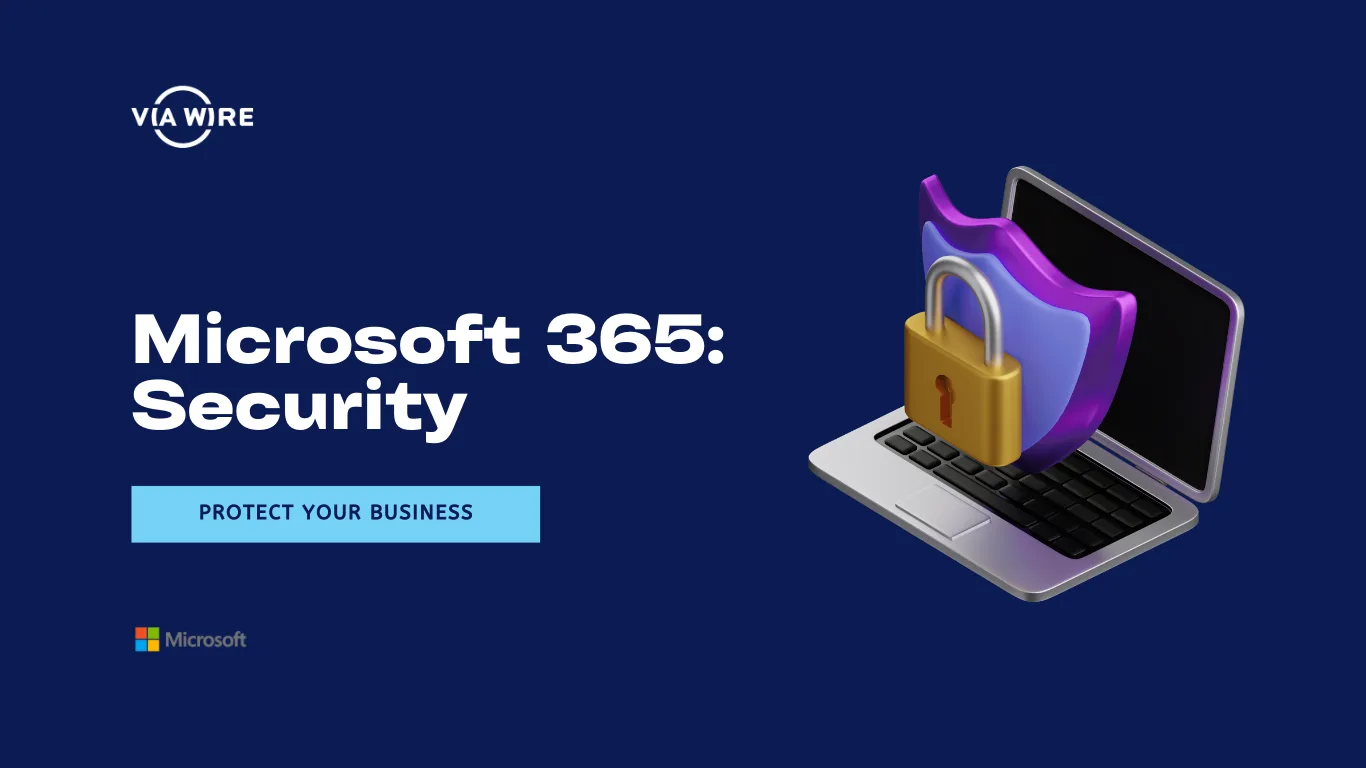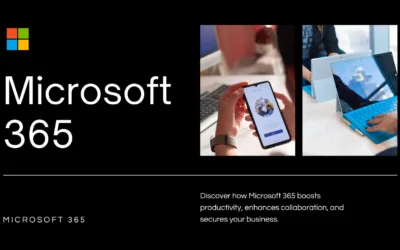Cyber threats pose a growing risk to businesses, regardless of size, in an increasingly connected world. With increasing amounts of data stored online and more employees working remotely, cybercriminals are becoming more sophisticated in their attack methods. As a business owner, it’s crucial to take proactive steps to protect your company from security breaches. Microsoft 365 offers robust built-in security features to safeguard your business from common threats, including phishing, data breaches, and malware attacks.
Here’s how you can utilise Microsoft 365’s powerful security tools to protect your organisation.
1. Enable Multi-Factor Authentication (MFA)
Multi-factor authentication (MFA) is one of the simplest and most effective ways to secure your business’s accounts and data. With MFA, users are required to provide two or more forms of identification before they can access their Microsoft 365 accounts. This adds an extra layer of protection beyond just a password, making it much harder for cybercriminals to gain unauthorised access.
How to Enable MFA:
- Set up MFA in Azure Active Directory – Navigate to the security settings in Azure AD and configure multi-factor authentication.
- Choose your authentication method – Options include authentication apps, phone calls, or hardware tokens.
- Require MFA for all users – To strengthen security, enforce MFA for all users, especially administrators.
Implementing MFA in your Microsoft 365 environment can significantly reduce the likelihood of account compromises, especially when paired with strong password policies.
2. Utilise Conditional Access Policies
Conditional Access is a powerful security feature in Microsoft 365 that lets you control who can access your business’s resources and under what conditions. This means you can apply security measures based on the user’s location, device health, or sign-in risk, ensuring that only trusted users can access sensitive information.
Key Benefits of Conditional Access:
- Risk-based access control – Block or grant access based on risk factors such as location, device health, and user risk level.
- Require MFA for high-risk sign-ins – Ensure that employees accessing your network from untrusted locations or devices use MFA for added protection.
- Device compliance enforcement – Ensure that only devices that comply with your organisation’s security policies can access company resources.
By implementing Conditional Access, you can enhance security without compromising productivity, ensuring only authorised and trusted users can access critical data.
3. Protect Against Phishing with Microsoft Defender for Office 365
Phishing attacks remain one of the most common methods used by cybercriminals to steal sensitive data. These attacks often involve fraudulent emails designed to trick employees into revealing their login credentials or clicking on malicious links. Microsoft Defender for Office 365 provides comprehensive protection against phishing, malware, and other email-based threats.
How Microsoft Defender for Office 365 Works:
- Safe Links & Safe Attachments – Defender automatically scans emails for malicious links or attachments and blocks harmful content before it reaches your inbox.
- Anti-Phishing Policies – Microsoft Defender uses machine learning and heuristics to detect phishing emails, including those that impersonate legitimate organisations.
- Real-Time Threat Monitoring – Alerts are triggered when suspicious activity is detected, allowing you to respond to potential threats in real time.
With Microsoft Defender for Office 365, your business can combat one of the most dangerous and prevalent cyber threats in today’s environment.
4. Why Businesses Need Expert Management for Optimal Security
While Microsoft 365 offers a wide range of security features, it’s crucial to remember that simply enabling these tools isn’t enough. To fully protect your business, you need to regularly monitor and manage your security settings, ensuring they evolve with the ever-changing landscape of cyber threats. This is where expert management comes into play.
Benefits of Expert Management:
- Continuous Monitoring – Experts can help monitor your Microsoft 365 environment 24/7, identifying and responding to threats as they arise.
- Security Configuration and Optimisation – Properly configuring security features like MFA, Conditional Access, and Defender requires expertise to ensure they are tailored to your organisation’s specific needs.
- Proactive Risk Management – With expert oversight, businesses can implement risk management strategies, including regular security audits and updates, to reduce vulnerabilities.
By partnering with a managed service provider (MSP) with expertise in Microsoft 365 security, businesses can ensure they are getting the most out of their security features while remaining one step ahead of cybercriminals.
Conclusion: Secure Your Business with Microsoft 365
Microsoft 365 provides a range of powerful security tools to protect your business from cyber threats. From multi-factor authentication to Conditional Access policies and Microsoft Defender for Office 365, these features offer a robust defence against the most common threats. However, to ensure your business is fully protected, it’s essential to implement these tools correctly and continuously monitor your security posture.
As a Microsoft Silver Partner, we offer expert management and guidance on configuring and optimising Microsoft 365 security features. Get in touch with us today to ensure your business stays secure and resilient against cyber threats.




0 Comments